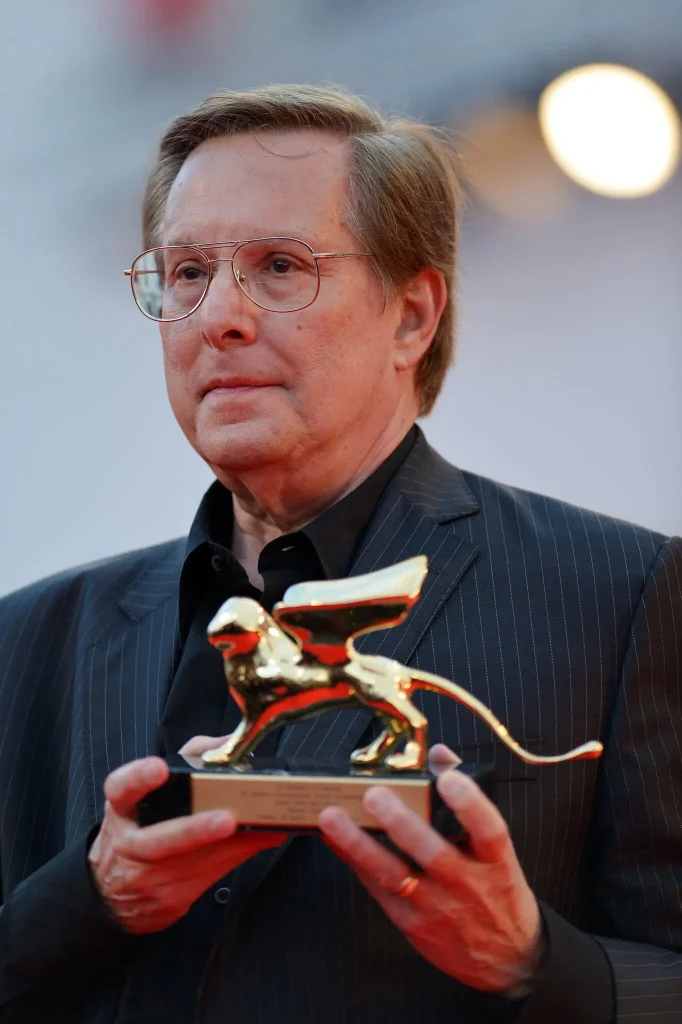The world of cinema mourns the loss of a true maverick as William Friedkin, the visionary director behind iconic films like “The French Connection” and “The Exorcist,” passed away at the age of 87 in his Bel Air home. Friedkin’s unique style and his affinity for exploring characters on the edge left an indelible mark on the film industry, earning him a place among its legends.
The news of Friedkin’s death comes just weeks before the release of his latest directorial venture, “The Caine Mutiny Court-Martial,” a film adaptation of Herman Wouk’s play. His passing marks the end of an era that was defined by gritty storytelling and daring exploration of the human psyche.
READ MORE: Melodies of Justice: Tory Lanez Faces Sentencing for Shooting Megan Thee Stallion
Friedkin’s journey into the realm of filmmaking began with a promise. His first feature, “Good Times,” a Sonny and Cher vehicle, caught critics’ attention with its infectious energy and innovative camerawork. The trajectory of his career quickly shifted as he delved into adaptations of theatrical works, such as “The Birthday Party” and “The Night They Raided Minsky’s.”
However, it was “The French Connection” that catapulted Friedkin into cinematic stardom. Collaborating with producer Philip D’Antoni, Friedkin harnessed a modest budget and relative unknowns to create a gripping narrative based on the true story of New York City police officers who dismantled an international heroin ring. The film’s visceral drama, raw realism, and an unforgettable car chase sequence made it a hallmark of the 1970s cinema.
Released in 1971, “The French Connection” stormed the Academy Awards, securing Oscars for Best Picture and Best Director, among other categories. Gene Hackman’s portrayal of Popeye Doyle added another layer of brilliance to the film, propelling it to become a game-changer in the crime thriller genre.
Friedkin’s prowess continued with “The Exorcist,” a chilling adaptation of William Peter Blatty’s horror novel. The film delved into the realms of possession and evil, intertwining suspense and gruesome visuals that captivated audiences. Its release in 1973 marked a milestone, as it became the first horror film to be nominated for a Best Picture Oscar.
The impact of Friedkin’s work reverberated across decades. “The French Connection” and “The Exorcist” inspired a new era of hard-boiled thrillers and challenged perceptions of horror films. Their influence extended to the realms of television and even changed critical attitudes toward the genre.
As Friedkin’s career unfolded, he navigated through peaks and troughs, delivering hits like “To Live and Die in L.A.” and confronting flops such as “Deal of the Century” and “Jade.” Despite the highs and lows, his legacy remained anchored in those transformative moments of cinematic brilliance that continue to resonate.
The director’s personal life was a tapestry woven with stories of marriages and collaborations. His partnership with Sherry Lansing, the former head of Paramount Pictures, stood as a testament to his ability to forge meaningful connections both on and off the screen.
In 2013, Venice Film Festival recognized Friedkin’s lifetime achievements with the prestigious Golden Lion award. His memoir, “The Friedkin Connection,” offered an intimate glimpse into the mind of a maestro. With films like “Bug” and “Killer Joe,” Friedkin demonstrated that his creative flame still burned brightly, refusing to be extinguished by time.
His final project, “The Caine Mutiny Court-Martial,” serves as a poignant curtain call to a legendary career. The film’s premiere at the Venice Film Festival will undoubtedly be a tribute to the man who reshaped cinematic landscapes and challenged conventional norms.
William Friedkin may have humbly seen himself as “a working guy,” but the world knows him as a trailblazer, a visionary, and a master of his craft. As the cinematic realm continues to evolve, his legacy will forever inspire filmmakers to push boundaries, explore the uncharted, and create magic on the silver screen.
